This article was co-authored by Muhammad Khan, MD, MPH. Dr. Muhammad Khan is a Gastroenterologist, with over 10 years of experience. Dr. Khan specializes in Pediatric Gastroenterology, Hepatology, and Nutrition, and has a special focus in Therapeutic Endoscopy. He received his Bachelor’s, Master’s, and Doctorate of Medicine degrees from The University of Utah. Dr. Khan completed his residency training at Eastern Virginia Medical School, where he was inducted into the prestigious Alpha Omega Alpha honor society. He then completed his fellowship training at Lucile Packard Children’s Hospital at Stanford University. He is a Fellow of both the American Society of Gastrointestinal Endoscopy (ASGE) and the North American Society for Pediatric Gastroenterology, Hepatology, and Nutrition (NASPGHAN).
There are 12 references cited in this article, which can be found at the bottom of the page.
This article has been viewed 585,526 times.
Flatulence is often called farting, breaking wind, or passing gas. This common ailment often happens because you swallow more air than usual, overeat, smoke, chew gum, or eat foods that cause gas. Flatulence can be embarrassing and painful for anyone, but don’t worry![1] You easily reduce flatulence with diet and lifestyle choices. If your flatulence is causing you serious discomfort, or if you think there might be an underlying medical issue, see your doctor.
Steps
Reducing Gas with Diet
-
1Have smaller meals throughout the day. Eat six small meals per day instead of three large meals.[2] Your system may more easily digest fewer meals and produce less gas from them.[3] A day of small meals might look like:
- For breakfast, go for a cup of yogurt with bananas and toast with butter or sugar-free jam.
- Have a wrap with avocado and homemade satay sauce for a mid-morning meal.
- Make steamed rice, vegetables, and grilled chicken for lunch.
- Put together a tasty fruit cup with bananas, grapes, and peaches for a mid-afternoon meal. You might also have a piece of lactose-free string cheese.
- Broil salmon, bake a potato and roast a selection of root vegetables for dinner.
- Indulge in a cup of sugar-free mango sorbet for dessert.
-
2Eat easily digestible carbs. Foods that contain simple carbohydrates may be easier for you to digest.[4] They may also produce less gas. Include any of the following simple carbs in your diet:[5]
- Potatoes
- Rice
- Bananas
- Grapes
- Citrus fruits
- Yogurt
Advertisement -
3Avoid gas-promoting foods. Plan your meals each day to include easily digestible carbs. Steer clear of food choices that may create gas in your intestines.[6] Find suitable replacements for the following gas-promoting foods:[7]
- Beans and lentils.
- Cruciferous vegetables such as broccoli, cauliflower, and brussels sprouts.
- Bran.
- Dairy products containing lactose.[8]
- Fruit such as apples and pears.
- Sorbitol, a sugar substitute found in some sugar-free products.[9]
- Whole wheat flour.
- Fatty junk foods, like fast food burgers or pizza.[10]
-
4
-
5
-
6Try digestive aids. Before meals, take an over-the-counter digestive aid such as Beano or Lactaid. These have enzymes in them that can help you better digest things such as lactose or fiber. Follow dosage instructions on the product packaging.[15]
Minimizing Flatulence through Lifestyle
-
1Get regular exercise. Physical activity can help your intestines expel gas and stay regular.[16] Exercise for at least 30 minutes most days of the week. If you are unable to do 30 minutes, aim for 2 15-minute sessions of physical movement, which can also ease flatulence. Try different kinds of exercise to prevent flatulence:
- Running
- Walking
- Biking
- Swimming
- Yoga
-
2Avoid chewing gum.[17] Fight the urge to throw a piece of gum in your mouth after meals or even if you’re bored. Chewing can stimulate your intestines and cause gas. It may also cause you to swallow more flatulence-promoting air.[18]
- Stay away from chewing gums with sorbitol, an artificial sweetener, which can cause gas to build up in your intestines.[19]
-
3Stop smoking. Just like chewing, you suck in air when you smoke. Limit how many cigarettes you smoke every day. If you can, kick your smoking habit altogether. This may prevent excess gas in your system that causes flatulence.[20]
- Speak to your doctor or healthcare professional if you are having a hard time reducing cigarettes or quitting smoking.
Getting Medical Help
-
1See a doctor if home remedies don’t work. If your preventative measures don’t help your flatulence, schedule an appointment to see your doctor. Let them know when your flatulence started and what you’ve done to prevent it. They can diagnose and treat potential underlying causes of flatulence, including:[21]
- Celiac disease
- Crohn’s disease
- GERD ((gastroesophageal reflux disease)
- IBS (Inflammatory bowel disease)
- Lactose intolerance
-
2Get medical help for painful or increased flatulence. If you find that you’re suddenly much more gassy than usual, or if your gas is causing you a lot of pain, these may be signs of an underlying condition. It is especially important to see your doctor if you have a hard time expelling your gas.[22]
- Your doctor may need to do an x-ray or MRI to determine if you have an intestinal blockage or other serious condition.
-
3Seek medical care if your abdomen is swollen or painful to the touch. Excessive or painful gas, when accompanied by a swollen, hard, or painful abdomen, can be a sign of a serious condition such as liver disease, an intestinal blockage, or a gut motility disorder. If you have these symptoms, see a doctor right away.[23]
- Your doctor may be able to prescribe a medication to reduce gas and other bowel symptoms.
- They may also prescribe enemas to help move material through your intestines and reduce discomfort.
Expert Q&A
Did you know you can get expert answers for this article?
Unlock expert answers by supporting wikiHow
-
QuestionHow can I reduce the amount of gas in my stomach?
 Peter Gardner, MDPeter W. Gardner, MD is a board certified physician who has practiced Gastroenterology and Hepatology for over 30 years. He specializes in diseases of the digestive system and liver. Dr. Gardner earned his Bachelor’s degree from the University of North Carolina and attended Georgetown Medical School. He completed his residency in Internal Medicine and then his fellowship in Gastroenterology at the University of Connecticut. He is a previous Chief of Gastroenterology at Stamford Hospital and remains on the staff. He is also on the staff of Greenwich Hospital and New York (Columbia) Presbyterian Hospital. Dr. Gardner is an Approved Consultant in Internal Medicine and Gastroenterology with the American Board of Internal Medicine.
Peter Gardner, MDPeter W. Gardner, MD is a board certified physician who has practiced Gastroenterology and Hepatology for over 30 years. He specializes in diseases of the digestive system and liver. Dr. Gardner earned his Bachelor’s degree from the University of North Carolina and attended Georgetown Medical School. He completed his residency in Internal Medicine and then his fellowship in Gastroenterology at the University of Connecticut. He is a previous Chief of Gastroenterology at Stamford Hospital and remains on the staff. He is also on the staff of Greenwich Hospital and New York (Columbia) Presbyterian Hospital. Dr. Gardner is an Approved Consultant in Internal Medicine and Gastroenterology with the American Board of Internal Medicine.
Board Certified Gastroenterologist Gas is usually caused by something you've eaten or swallowing air. You may need to stay away from dairy. If you are lactose intolerant, the sugar lactose will get broken down and fermented in the colon, which causes tremendous gas and bloating. People with celiac disease cannot digest gluten, which causes gases to form. If you have celiac, you'll need to stay away from gluten products.
Gas is usually caused by something you've eaten or swallowing air. You may need to stay away from dairy. If you are lactose intolerant, the sugar lactose will get broken down and fermented in the colon, which causes tremendous gas and bloating. People with celiac disease cannot digest gluten, which causes gases to form. If you have celiac, you'll need to stay away from gluten products. -
QuestionDo I need to eat less?
 Jurdy Dugdale, RNJurdy Dugdale is a Registered Nurse in Florida. She received her Nursing License from the Florida Board of Nursing in 1989.
Jurdy Dugdale, RNJurdy Dugdale is a Registered Nurse in Florida. She received her Nursing License from the Florida Board of Nursing in 1989.
Medical Review Board
Warnings
- Always talk to your doctor before changing your diet, starting a new exercise program, or trying supplements.⧼thumbs_response⧽
References
- ↑ https://health.clevelandclinic.org/what-causes-flatulence-and-what-to-do-when-its-a-problem-for-you/
- ↑ Peter Gardner, MD. Board Certified Gastroenterologist. Expert Interview. 25 August 2020.
- ↑ https://www.nhs.uk/conditions/flatulence/
- ↑ Muhammad Khan, MD, MPH. Board Certified Gastroenterologist. Expert Interview. 24 August 2021.
- ↑ https://medlineplus.gov/ency/imagepages/19534.htm
- ↑ Muhammad Khan, MD, MPH. Board Certified Gastroenterologist. Expert Interview. 24 August 2021.
- ↑ https://www.uofmhealth.org/health-library/tm6321spec
- ↑ Peter Gardner, MD. Board Certified Gastroenterologist. Expert Interview. 25 August 2020.
- ↑ Muhammad Khan, MD, MPH. Board Certified Gastroenterologist. Expert Interview. 24 August 2021.
- ↑ Muhammad Khan, MD, MPH. Board Certified Gastroenterologist. Expert Interview. 24 August 2021.
- ↑ Muhammad Khan, MD, MPH. Board Certified Gastroenterologist. Expert Interview. 24 August 2021.
- ↑ https://health.clevelandclinic.org/what-causes-flatulence-and-what-to-do-when-its-a-problem-for-you/
- ↑ Peter Gardner, MD. Board Certified Gastroenterologist. Expert Interview. 25 August 2020.
- ↑ http://www.nhs.uk/conditions/flatulence/Pages/Treatment.aspx
- ↑ https://health.clevelandclinic.org/what-causes-flatulence-and-what-to-do-when-its-a-problem-for-you/
- ↑ https://www.aafp.org/afp/2019/0301/p301-s1.html
- ↑ Muhammad Khan, MD, MPH. Board Certified Gastroenterologist. Expert Interview. 24 August 2021.
- ↑ https://gi.org/topics/belching-bloating-and-flatulence/
- ↑ Muhammad Khan, MD, MPH. Board Certified Gastroenterologist. Expert Interview. 24 August 2021.
- ↑ http://www.nhs.uk/conditions/flatulence/Pages/Treatment.aspx
- ↑ https://www.aafp.org/afp/2019/0301/p301.html
- ↑ https://familydoctor.org/condition/flatulence-gas/
- ↑ https://my.clevelandclinic.org/health/diseases/7314-gas-and-gas-pain
- ↑ Muhammad Khan, MD, MPH. Board Certified Gastroenterologist. Expert Interview. 24 August 2021.
About This Article
To prevent flatulence, try to avoid eating foods that cause gas, like beans and lentils, cruciferous vegetables, dairy products, and fatty junk foods. Instead, eat foods that are easily digestible, like rice, potatoes, bananas, and citrus fruits. Also, try to limit how many carbonated beverages you consume since they can make you gassy. You should also chew your food slowly since eating fast can make you swallow excess air, which causes gas. To learn how to make lifestyle changes that can prevent flatulence, scroll down!
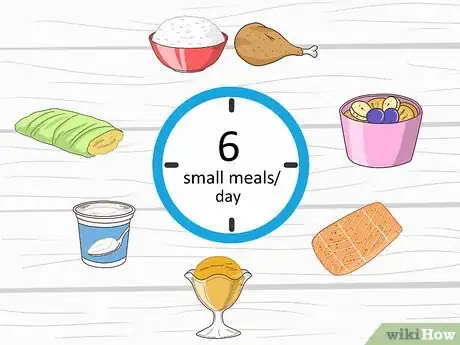

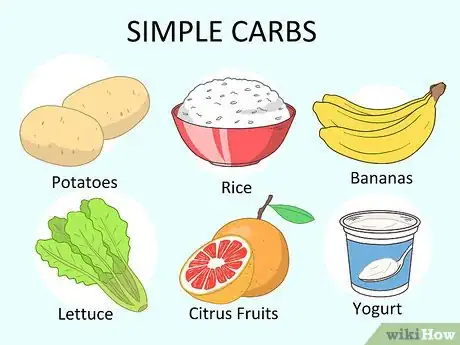

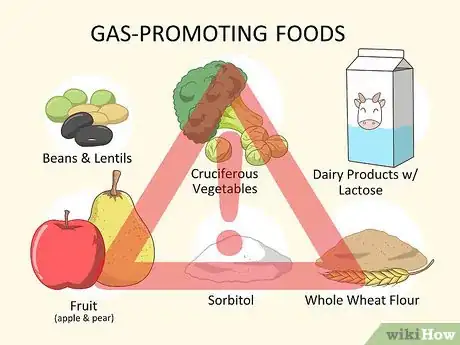
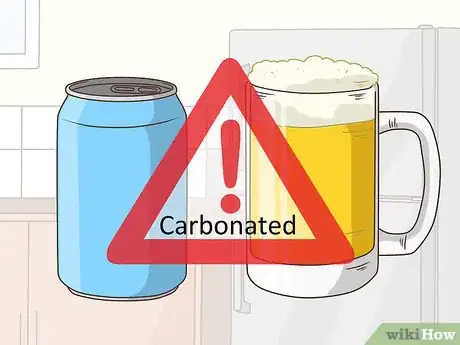
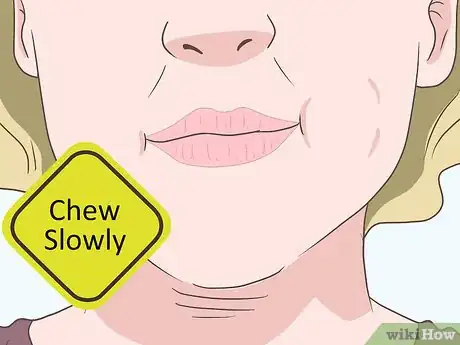
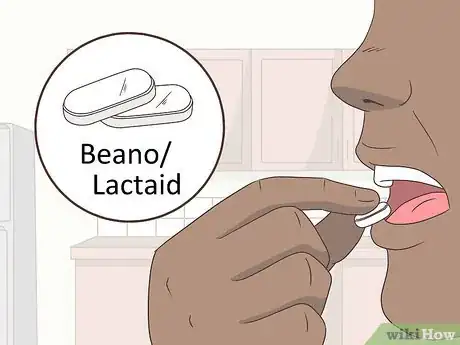
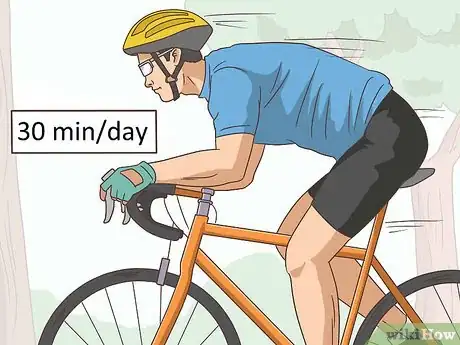
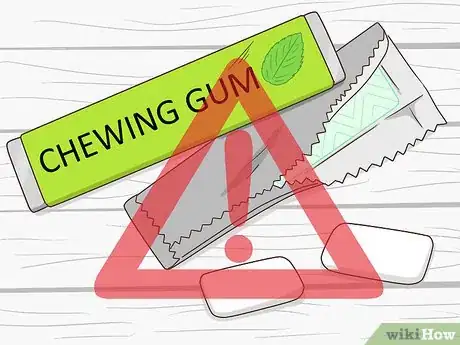
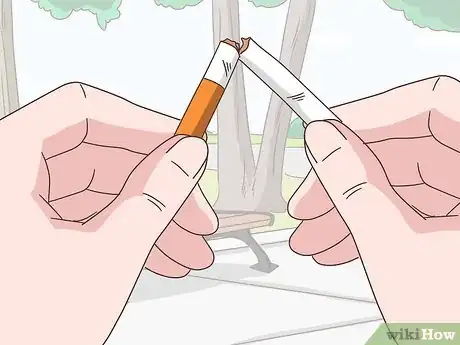
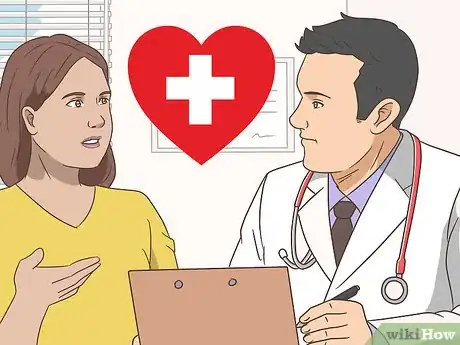

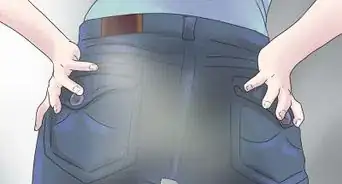
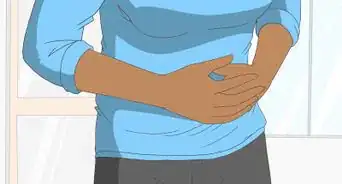
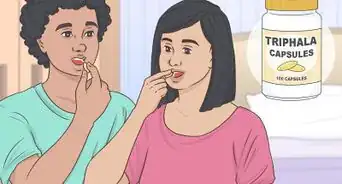


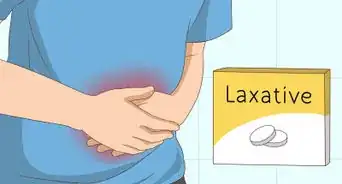

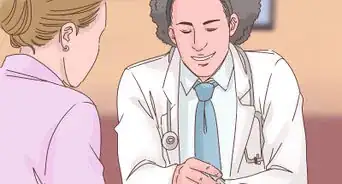
















































Medical Disclaimer
The content of this article is not intended to be a substitute for professional medical advice, examination, diagnosis, or treatment. You should always contact your doctor or other qualified healthcare professional before starting, changing, or stopping any kind of health treatment.
Read More...